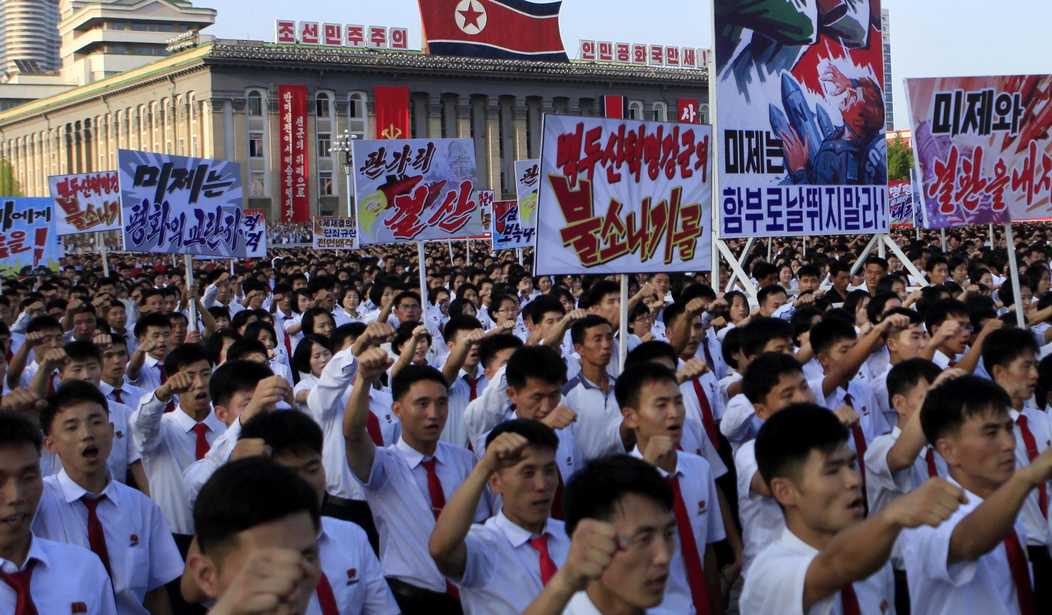WASHINGTON – North Korea’s surveillance state is not sustainable in the long run despite the country’s leadership maintaining its position while millions of its citizens die, a Korea scholar argued Monday.
Andrei Lankov, a professor at the Republic of Korea’s Kookmin University, who was born in the Soviet Union, described an interview with a young girl who had grown up in North Korea. She lived in Pyongyang, where she would smuggle Chinese cigarettes from the border and sell them for huge profits, he said at the Cato Institute.
This was around 1996, in the midst of North Korea’s famine, which is estimated to have killed anywhere from 250,000 people to 3.5 million. This girl, according to Lankov, was able to run her smuggling operation by bribing police officers.
Every train that departs or arrives in Pyongyang is required to have a police patrol on board, and she would bribe this police officer with an amount of money twice his monthly salary. According to Lankov, the police officer didn’t ask any questions and even helped the girl unload heavy bags of smuggled Chinese tobacco. While describing this as “very normal behavior,” Lankov said that regulation enforcers are not willing to work for the “love of their leader,” but for enough money to buy rice and pork.
Lankov described the per capita income gap between North Korea and South Korea, which is the largest gap in the world between two bordering nations. According to Lankov, the per capita income gap between East Germany and West Germany was between 1-to-2 and 1-to-3, but the gap between North Korea and South Korea is between 1-to-14 and 1-to-30.
“A surveillance state might look terrifying, but it’s terribly expensive, remarkably inefficient and probably not sustainable in the long run, even though the period when it can be sustained might be long enough for millions of people to die,” Lankov said.
According to Harvard scholar Mark Kramer, 80 million people died needlessly in North Korea between 1917 and the mid-1990s. Other estimates claim as many as 160 million. That’s between 150 and 300 people every hour for nearly 80 years.
Monday’s discussion also featured scholars on Cuba and the Soviet Union, who drew comparisons to North Korea. Freedom House’s Yuri Pérez, who grew up in Cuba, joked that there are more staunch communists in American universities than Cuban schools. While he said it was meant to be funny, he called it true to an extent given that Cubans have communist ideas forced upon them, while some Americans are drawn to the romantic notions of communism. In Cuba, elementary school children are told to swear allegiance to Che Guevara and Fidel Castro, he said.
“That idea that you are willing to kill for a regime, human rights don’t matter — you are taught that since an early age,” he said.
He explained how Cuban citizens recently gained the right to own computers but wifi access is granted through government-issued credentials, so the regime is able to observe all activity.
“That allows the regime to have an almost total monopoly of the exchange of information,” he said.
Pérez described Venezuela as a “copy and paste” version of Cuba, in which the Maduro regime has complete control over television and media. He said that the regime has destroyed traditional society and created slaves to the government.
Andrei Illarionov, a Russian expert at Cato, laid out the “methods of terror” used by the Soviet Union: deportation, confiscation of property, arrests, hostage-taking, camp confinement, torture, execution and extrajudicial killings, all of which have been reported in North Korea. He described how these totalitarian regimes will destroy any groups considered incompatible with a classless communist society.









Join the conversation as a VIP Member